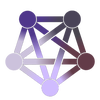What If: No Social Media Anonymity (Edit)
Question for the masses because I’m curious:
What do you think social media would be like if there was no anonymity?
Is it fair to say some people behave differently online because of anonymity?
Would it be good or bad if everything you posted could be tied back to you by your friends, family, employer, etc?
Some obvious concerns people express:
- personal safety
- freedom to express views contrary to community, government, etc without retaliation
- fear of stigmas related to support, education, etc for stigma topics like mental health, sexuality, etc
What reasons do you have for not wanting to own your online identity other than being able to talk trash without being identified? Some people are public and still talk a lot of trash, looking at you Twitter.
You you got doxed, what do you think the impact would be just related to social media conduct?
Edit: With the introduction of online protections for minors, how does that affect the question?
Not from a political standpoint but from a technology one, how do you see that even working?






Add comment